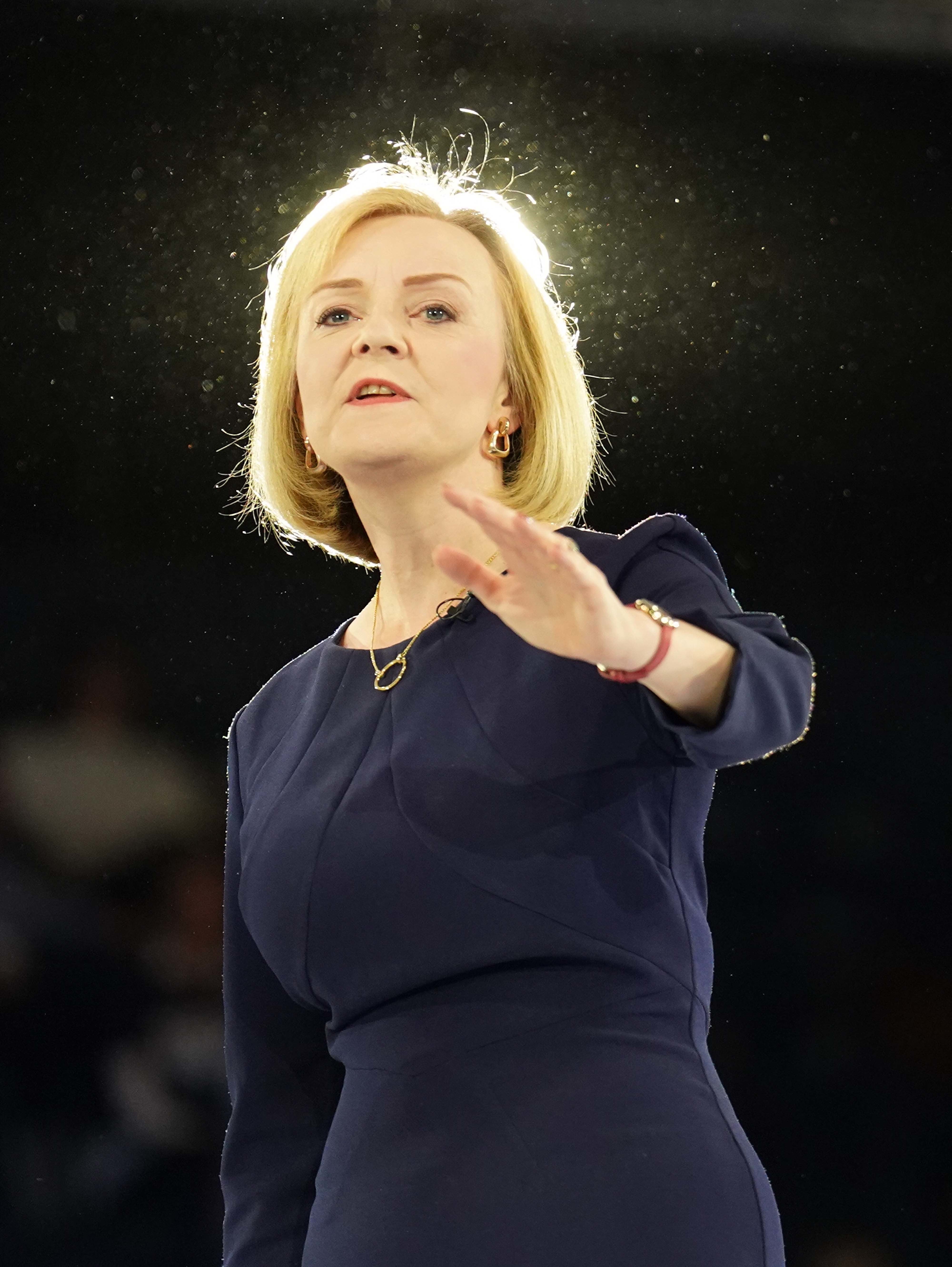How Conservative members chose Liz Truss as the next prime minister
The way in which she has won the keys to Downing Street is a result of the UK having a parliamentary democracy.

Your support helps us to tell the story
From reproductive rights to climate change to Big Tech, The Independent is on the ground when the story is developing. Whether it's investigating the financials of Elon Musk's pro-Trump PAC or producing our latest documentary, 'The A Word', which shines a light on the American women fighting for reproductive rights, we know how important it is to parse out the facts from the messaging.
At such a critical moment in US history, we need reporters on the ground. Your donation allows us to keep sending journalists to speak to both sides of the story.
The Independent is trusted by Americans across the entire political spectrum. And unlike many other quality news outlets, we choose not to lock Americans out of our reporting and analysis with paywalls. We believe quality journalism should be available to everyone, paid for by those who can afford it.
Your support makes all the difference.Liz Truss will be the next prime minister, having been selected as the new Tory leader, but did you get a vote in that election? The overwhelmingly likely response is no.
The way in which she has won the keys to Downing Street is a result of the UK having a parliamentary democracy. Here is a look at how the contest worked and who got to vote in it.
– Who chose the winner?
The Conservative Party is in power in Westminster because Boris Johnson led it to an overwhelming victory in the 2019 general election.
He was forced out by his own MPs when power drained away from him after a series of scandals, including partygate.
But the Government itself has not collapsed, it is just that the party in power needed to find a new leader to take over from Mr Johnson.
The Conservatives did this by ultimately asking party members to select a winner from a final two candidates.
– How many people chose the next prime minister?
As Ms Truss’s victory was announced, it emerged there were 172,437 members eligible to vote in the contest.
With the UK population around 67.1 million, that means that less than 0.3% of the country was able to directly select the new leader.
More than 142,000 members cast votes, with Ms Truss winning a comfortable margin of victory of 57% to Mr Sunak’s 43%.
– How did we end up with two final contenders?
First the nine candidates to replace Mr Johnson were whittled down to Ms Truss and Rishi Sunak during five rounds of voting by Tory MPs.
Mr Sunak, a former chancellor, was their favourite, winning 137 votes to Ms Truss’s 113, during the final vote on July 20.
Over the summer months, with Parliament taking its typical recess, the Foreign Secretary and her rival toured the UK to take part in 12 party-organised hustings.
– What is the Tory membership like?
A typical member would have paid a standard annual fee of £25, and, while they are not all party activists, they would receive regular party updates and invitations to Tory events.
Tim Bale, a professor of politics at Queen Mary University of London, is an expert on party membership.
He has said that, in the three years since Mr Johnson was elected leader, the make-up of Tories has remained largely the same.
They remain largely wealthy, older, white males, according to research.
Prof Bale said the membership is made up of more men than women – with 40% over the age of 65.
Around 95% identify as white British and the vast majority are so-called ABC1s – better-off individuals in higher-salaried jobs.
They are twice as likely to live in the South of England compared with the population of Britain as a whole.
Prof Bale said members are not as keen as MPs on shrinking the state, cutting spending and reducing taxes.
“MPs are much more ‘conservative’ on the economy than members,” he said.
“The reverse is true when it comes to their social attitudes, when it comes to underlying social values, they tend to be quite socially conservative and more so than Tory MPs.”
But, he said, party members retain traditional conservative values, including wanting politicians to be tough on crime and tough on immigration.